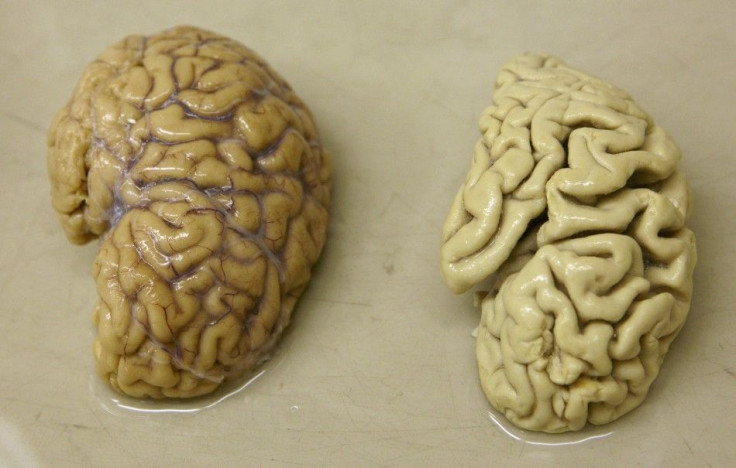Growing Fear in U.S. Over Alzheimer’s Disease [VIDEOS]

There are growing concerns among the public about Alzheimer's disease, and a study finds that it has become the second-most feared disease after cancer.
The findings of the study were presented at the Alzheimer's Association International conference in Paris on Wednesday.
The Harvard School of Public Health and Alzheimer Europe conducted a telephone survey of 2,678 people who were at least 18 years of age across the U.S. and Europe, and they found that about 25 percent of responders feared getting the disease.
More than 85 percent of those who responded said they would see a doctor if they experienced any symptoms of memory loss. Additionally more than 94 percent said they would want their family members to do the same, according to Reuters.
It tells us that the public is really concerned about Alzheimer's disease, said Mary Sano, from the medical and scientific advisory council at the Alzheimer's Association, during an interview after the briefing. It's the second most-concerning health care problem for individuals across these countries.
The survey showed that the participants are concerned about the disease because many of them knew people with Alzheimer's: 72 percent of those in France did, 73 percent in Germany, 77 percent in Spain, 73 percent in the U.S. and 54 percent in Poland, according to Reuters.
Further, 40 percent of those surveyed didn't know that Alzheimer's is a fatal disease. They also thought there are treatments to slow its development, but current drugs only treat the symptoms and not delay the progression of the disease, according to Reuters.
Sano said that there are very high expectations that the symptoms of memory impairment or confusion are likely to be treated and diagnosed by a clinician, and so it's therefore, an important mission to realize that people are looking for treatment and detection of Alzheimer's.
But it's a complex disease and treatment is going to be a challenge, Sano said, because it is important to know that effective treatments don't cause serious or damaging side effects.
There is opportunity to plan for your future if one knows that their memory loss is really an early sign of Alzheimer's disease, Sano said. I think we heard that people are really eager to diagnose this disease when there are symptoms present. I think it's important to realize that early diagnosis gives the patient the opportunity to plan for their future and it gives the family time to adapt to the changes that will occur.
Sano added that she hopes that people act on their concerns and get early detection. She said there are continuous research opportunities that may be available to those who get early detection.
See interviews from the conference below:
© Copyright IBTimes 2024. All rights reserved.












